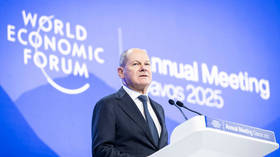Exit polls show CSU losing majority it has long enjoyed
as far-right AfD, and far-left Greens, makes gains
The Guardian
Kate Connolly and Josie Le Blond in Berlin
The Bavarian leader, Markus Söder, reacts to his party’s worst election result for six decades.
Photograph: Christof Stache/AFP/Getty Images
Angela Merkel’s conservative partners in Bavaria have had their worst election performance for more than six decades, in a humiliating state poll result that is likely to further weaken Germany’s embattled coalition government.
The Christian Social Union secured 35.5% of the vote, according to initial exit polls, losing the absolute majority in the prosperous southern state it had had almost consistently since the second world war. The party’s support fell below 40% for the first time since 1954.
Markus Söder, the prime minister of Bavaria, called it a “difficult day” for the CSU, but said his party had a clear mandate to form a government.
Among the main victors was the environmental, pro-immigration Green party, which as predicted almost doubled its voter share to 18.5% at the expense of the Social Democratic party (SPD), which lost its position as the second-biggest party, with support halving to less than 10%.
Annalena Baerbock, the co-leader of the Greens, said: “Today Bavaria voted to uphold human rights and humanity.”
Andrea Nahles, the leader of the SPD, delivered the briefest of reactions at her party’s headquarters in Berlin, calling the results “bitter” and blaming them on the poor performance of the grand coalition in Berlin.
The anti-immigration Alternative für Deutschland, which entered the national parliament for the first time after a federal election last year, repeated the feat in Bavaria – once considered to be off-limits – and will enter the regional parliament for the first time having secured about 11% of the vote.
Katrin Ebner-Steiner of the AfD told jubilant party supporters she would spend the next five years “representing your strong voice” at a time when Germany and Bavaria were in a “dreadful state” over migration. “We’re cut from a different wood from the bloodless mainstream parties,” she said, promising to “fight for victory not for us, but for Bavaria”.
The Free Voters, a regional protest party, is also likely to enter parliament, having secured a historic 11.5%. Its leader, Hubert Aiwanger, said shortly after the result that he had called the CSU leadership to start coalition negotiations.
Turnout, at 72.5%, was at its highest level for almost 40 years, thanks in part to the clement weather, in part to the historic nature of the vote.
The CSU, the sister party to Merkel’s Christian Democrats (CDU), has ridden for decades on a ticket of folksy beerhall rhetoric and pledges to protect the heimat (homeland), combined with the drive for economic success – often referred to as “laptop and lederhosen”.
Merkel did not react to the results, but the CDU’s general secretary, Annegret Kramp-Karrenbauer, called them “bitter … but not surprising”, citing the governmental infighting of recent months. She said the party would urgently consult before a state election in Hesse in two weeks’ time. “We need to address the issues which are burning under people’s fingernails,” she added.
At the previous election in 2013, the CSU secured 47.7% of the vote, compared with 62% at the height of its popularity in 1974.
The party more or less took for granted its dominant position as the standalone leader in Bavaria, but its power base started to erode with the demise of the mainstream political landscape across Germany and elsewhere in Europe.
However, the dramatic slide in the CSU’s fortunes coincided with the arrival of about 1 million refugees to Germany in the summer of 2015 through Bavaria, causing uncertainty and some xenophobia.
The CSU leadership under Söder and the party leader, Horst Seehofer – who is also the federal interior minister – did its best to blame the growing sense of instability in Bavaria on Merkel’s refugee policy.
In an effort to tackle the backlash against Muslim refugees, it introduced a law requiring classrooms and public buildings to hang the crucifix and ban the full-face Islamic veils.
The fallout over the refugee crisis and disputes between Seehofer and Merkel over how to control Germany’s border have almost led to the collapse of her fragile coalition.
But in the weeks running up to the election, successive polls showed the CSU’s hardline stance and its near-success in causing the government’s collapse had prompted a haemorrhaging of voters to other parties.
The CSU’s dismal result leaves in doubt the political futures of both Söder and Seehofer.
Speaking on Sunday evening, Seehofer said the party would “draw the necessary consequences” from the poor result over the following weeks, but did not refer to his or Söder’s futures.
The forthcoming makeup of the Bavarian government is unclear, although the Greens have signalled their willingness to enter a coalition with the CSU, which in turn is uneasy about such an alliance. Statistically, the CSU could also form a government with the Free Voters, with whom they have considerably more in common.
Reacting to the vote, Thomas Steinleitner, a baker from the town of Deggendorf who abandoned the CSU for the first time, said the party had lost touch with its supporters.
“They just repeated what the AfD said, and I don’t identify with them any more. The CSU and CDU – all the big parties – it feels like they work together with industry, but us normal people are not important to them,” he said.
This is an aberration for recent elections in the EU. The positioning of AfD in the state parliament is overshadowed by the dramatic doubling of the Greens and the decrease in seats for the CSU. Basically, Bavaria has rejected Seehofer's attempts to move it to the right in regard to immigration and Islamization, and the state has politically shifted a little to the left. This is not a good thing for Germany.
Bavaria, Germany























